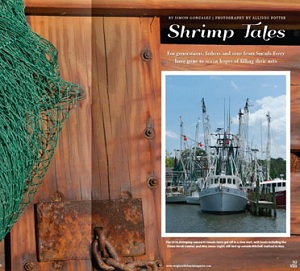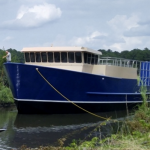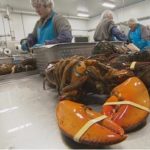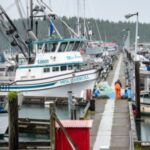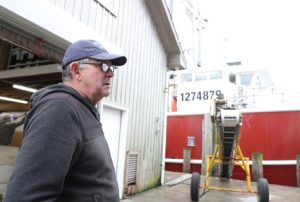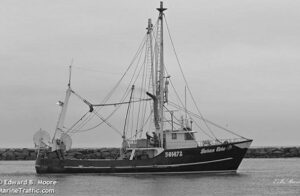Daily Archives: July 27, 2018
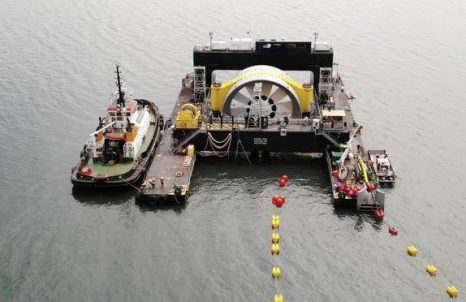
“That turbine was put down there in bad faith.” – Cape Sharp Tidal owner files for bankruptcy in Ireland
A week after a massive tidal turbine was placed in the Minas Passage, its owners have filed for bankruptcy. Local contractors, marine service companies, motels, fishermen and other business people are owed an undetermined amount of money. OpenHydro owns 97 per cent of Cape Sharp Tidal, with the remaining three percent owned by Emera, Nova Scotia Power’s parent company.,, Fishermen claim they were told the turbine would not be installed at the Force site in the Minas Passage until the close of the lobster season at the end of July. “They used all these local resources, hired all these local business people, drove right over all that local lobster gear and they never intended to pay nobody,” said Darren Porter, spokesman for the Fundy United Federation, a fishermen’s organization. One contractor, who didn’t want his named used, estimated that OneHydro owes “tens of millions of dollars” to local companies. >click to read<22:11

Kotzebue fisheries group wins its case against former directors
A fisheries group in Kotzebue has won its case against some of its former directors and their for-profit corporation, Chum, LLC. The directors were charged with breaching their fiduciary duty, or trust to act in the best interest of those they represented. “This case is an example of what happens when directors of a nonprofit take money from the corporation and use it for their own benefit,” said Myron Angstman, a lawyer for Kotzebue Sound Fisheries Association, which was the plaintiff in the case, in a statement. The court issued a decision on July 10 against two of the defendants after years of legal back-and-forth. >click to read<18:47
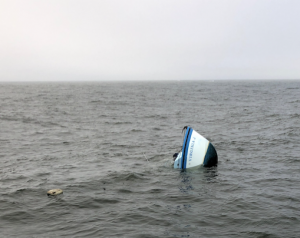
Pillar Point fishing vessel sinks, no injuries
A Pillar Point Harbor fishing vessel sank roughly five miles off the coast early Thursday morning. Two adults were rescued from the boat; there were no known injuries. The U.S. Coast Guard reported catching a distress signal over the radio at around 6 a.m. indicating that the “Virginia J” was taking on water. A helicopter and a 47-foot rescue vessel from the Coast Guard’s San Francisco Sector fleet were deployed and the Coast Guard issued its own emergency broadcast over the radio to alert other boaters of the incident, said Sarah Wilson a spokeswoman for the U.S. Coast Guard. Within five minutes of receiving the call, another Pillar Point Harbor fishing vessel – the “Redeemer” – was able to respond and take the two adults on the sinking vessel aboard. >click to read<14:06
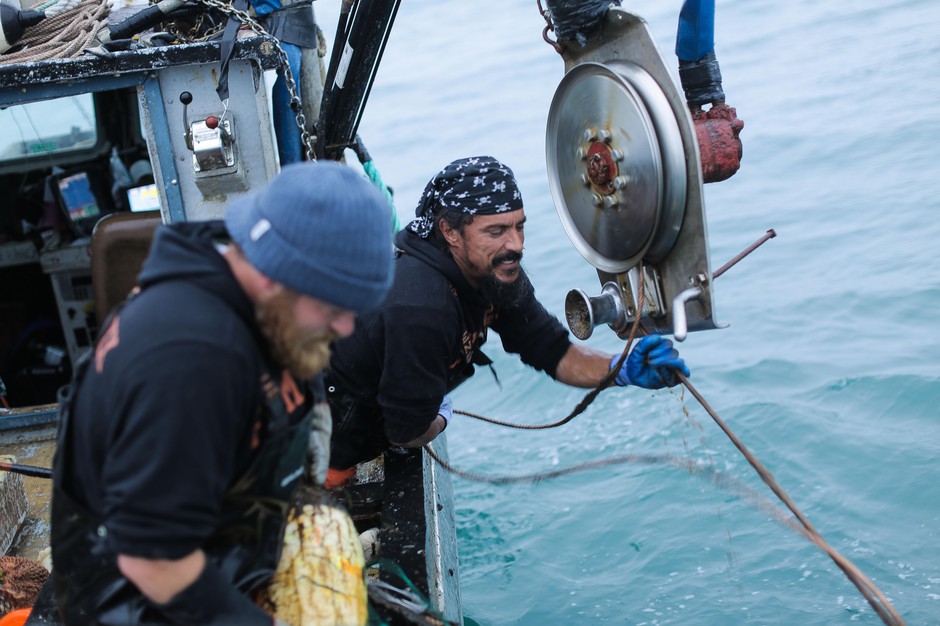
‘There Aren’t A Lot Of Other Options’: Port Orford’s Season Of Crab And Crisis
Oregon’s 2018 toxic algae troubles didn’t begin with the summer bloom tainting Salem’s water supply. The opening salvo actually came from the wintry Pacific, where high levels of domoic acid — a neurotoxin byproduct of marine algae blooms — disrupted seafood production along Oregon’s South Coast. For Port Orford in particular, where the fishing industry sustains about one-third of the local economy, this meant a season of loss instead of bounty. By the numbers, Port Orford really can’t afford more economic distress. >click to read<10:58

FISHY BUSINESS: A personal look at Scituate fishing
I have been writing Fishy Business about the commercial fishing industry and other maritime topics for a number of years and until now have never referred to myself. This column is different because our commercial fishing industry in Scituate is on the cusp of extinction; which is very personal to me. In this case, “commercial fishing” is referring to the finfish (or groundfish) fleet and the few boats that drag for shellfish. For now, the lobster fleet is doing well, but those businesses face their own perils to be discussed another time.,, There are many factors that are leading to the end of commercial fishing in Scituate and in many other small ports. By Christian Putnam >click to read<09:43
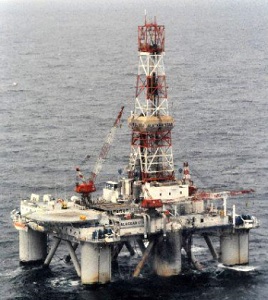
July 27, 1981: Oil drilling begins on Georges Bank – ”It’s only a matter of time before the fishermen get used to having us out here.”
On this day in 1981, the New York Times reported on the start of drilling for oil in Georges Bank. It was not to be, however, as the first President George Bush later proclaimed a federal edict which prohibited all offshore oil exploration, at least until today when his son has rescinded that presidential edict. Eight exploratory wells were dug to average depths of 16,000 feet about 125 miles east of Cape Cod through early 1982. At 4:57 P.M., Wes Campbell, a driller working for the Shell Oil Company, lowered a column of steel pipe deep into the Atlantic, 200 miles off the coast of Massachusetts. >click to read<08:14






